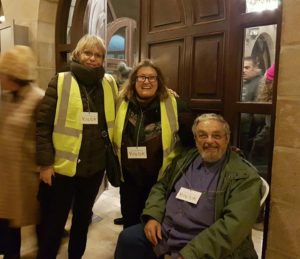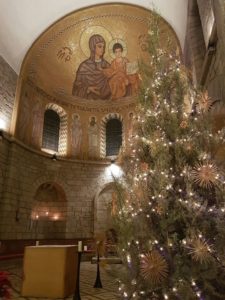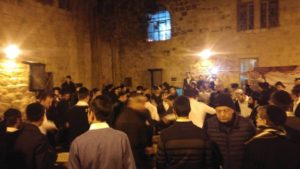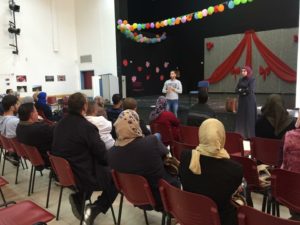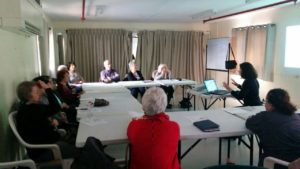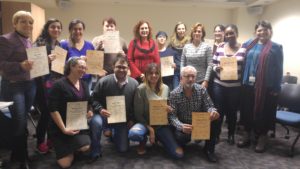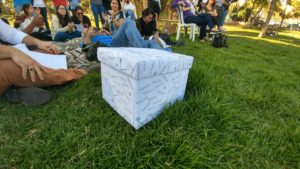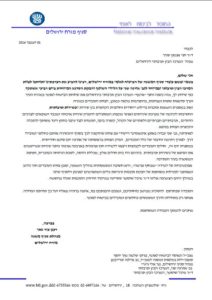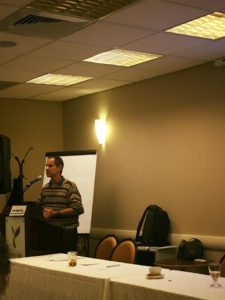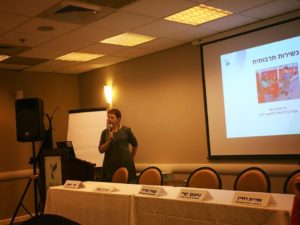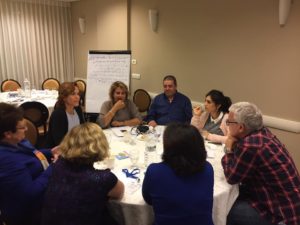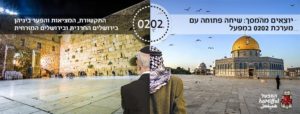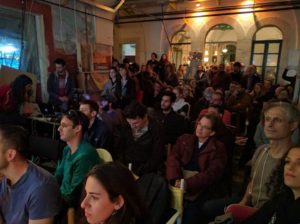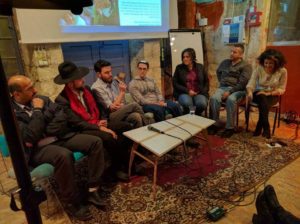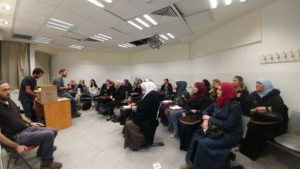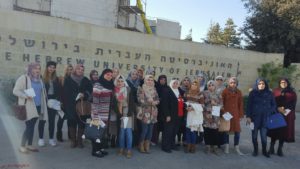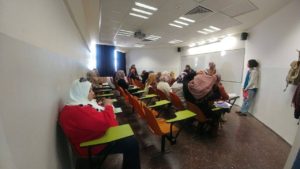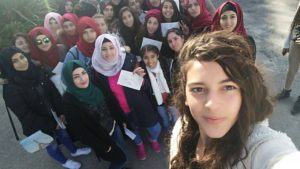Window to Mount Zion – Christmas and Chanukah on Mount Zion
What do you do on Mount Zion when the weekly Saturday-night celebration, known as a Melave Malka, the first night of Chanukah, and Christmas Eve all fall on the same day? You celebrate, of course! With a little (actually a lot) of help from Window to Mount Zion.
It hasn’t always been this way. In the past the presence of different groups of Jews and Christians celebrating at the same time in the same space have caused tension and even violence. Thanks to the Window to Mount Zion project, over the past year and a half tensions have markedly decreased. Project volunteers work hand in hand with the major religious institutions on Mount Zion, (such as the Dormition Abbey, the Yeshiva of the Diaspora, those associated with David’s Tomb), as well as with the police and police volunteers. All of this cooperation has helped to enable a wide variety of holiday celebrations and events to take place in a unique way that respects everyone’s traditions.
Here’s a short clip of the midnight mass at the Dormition Abbey:
This was the second year that Window to Mount Zion volunteers came to the Christmas Eve service at the Dormition Abbey. After the success of last year, the Dormition Abbey actually called Window to Mount Zion to make sure they were going to be helping out again this year. Volunteers received the many guests who came for the midnight mass at the church and explained to them what was going on. Most of the guests were Israeli Jews who wanted a ‘far-away experience’ close to home, and who are interested in the different and diverse cultures in Jerusalem.
Window to Mount Zion volunteers were also part of the weekly Melave Malka festivities, which take place every Saturday night. They were there to explain and give background to the guests, and give a general helping hand.
We’re forever thankful to the Window to Mount Zion volunteers for their work. As a way of saying thanks, we brought them a lecture before the celebrations began. This time it was Yiscah Hareni, who spoke about the significance of Christmas.
Happy Holidays from Mount Zion in Jerusalem! May the Mount Zion model serve as an example for the rest of Jerusalem, and even the entire region.
And here’s the Facebook post in Hebrew about the event:

